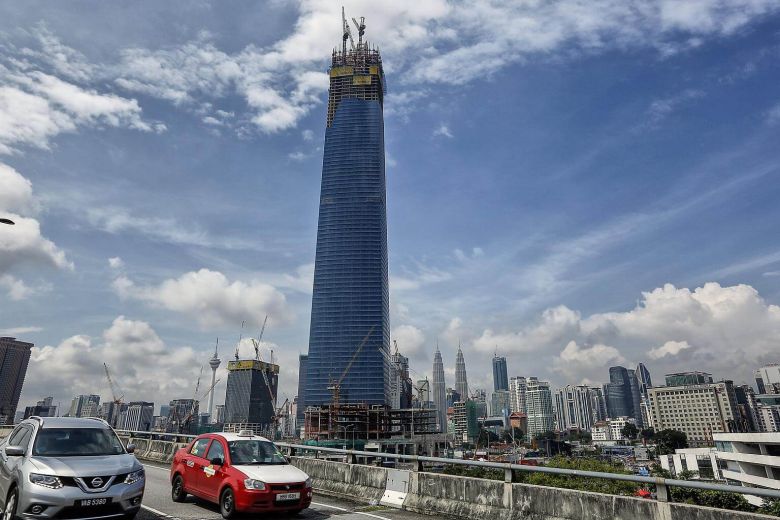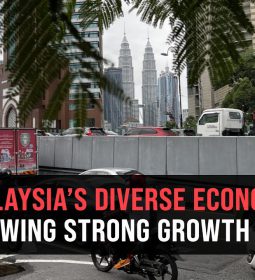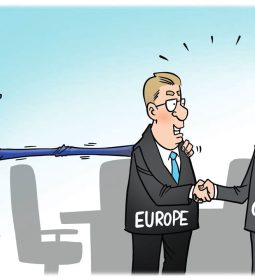Movers and dampers: State of real estate business in world and Malaysia

By Kathy B.
COMMERCIAL real estate developers have been churning out properties at a healthy rate over the years but this year, they will be building fewer office, retail and hotels as the market remains challenging, a survey shows.
Developers specialising in logistics, industrial and healthcare as well as institutional segments will have the upper hand, supported by demand.
The logistics/industrial and healthcare/institutional sub-sectors have continued to outperform this year despite growing global and domestic headwinds, fuelled by strong foreign direct investments (FDIs) in the manufacturing sector, continued strong growth in retail e-commerce and inelastic demand for healthcare services, said global property consultant Knight Frank Malaysia.
The firm expects the logistics/industrial subsector to remain the industry’s sweet spot in Klang Valley and Johor while the hotel/leisure segment will continue to garner more interest in Penang and Sabah.
The Malaysia Commercial Real Estate Investment Sentiment Survey 2019, launched by Knight Frank recently, indicates that lenders are targeting fewer investment activities in the office and retail sub-sectors this year and showing more interest in the hotel/leisure, logistics/industrial and healthcare/institutional sub-sectors.
Survey respondents comprised representatives in the senior management levels across the property industry. Developers made up half of the respondents (54 per cent), followed by commercial lenders (30 per cent) and fund/real estate investment trust (REIT) managers (16 per cent).
2018 ULTIMATE HIGHLIGHT
Knight Frank Malaysia managing director Sarkunan Subramaniam said the victory of the Pakatan Harapan coalition in the 14th General Election was the ultimate highlight for the country last year.
However, in light of the current slowdown in both global and domestic economies, some respondents opined that the new government should up the ante by introducing and implementing policies to spur economic activities, he said.
Sarkunan said the possibility of a no-deal Brexit, coupled with the ongoing United States-China trade and tech war, continues to create uncertainties and dampen investor confidence. This will inevitably lead to slower investment activities globally, including in commercial real estate.
He said many respondents pointed out that the government should seek to stimulate growth in key industries that would generate strong multiplier effects on the economy.
“The commercial real estate sector had remained lacklustre in 2018. This prompted our respondents to indicate the need to curb irrational new supply and relax property lending guidelines. These measures are seen as vital for Malaysia’s property sector to achieve market equilibrium.
“This year’s survey findings show that respondents are generally optimistic about the logistics/industrial and healthcare/institutional sub-sectors and expect them to outperform the overall commercial real estate market in 2019. It is also worth noting that respondents from Sabah are bullish about the hotel sub-sector, in line with the region’s booming tourism industry,” he said.
ACTIVE BUT CAUTIOUS
Sarkunan said while the commercial real estate market remains challenging, it does present a good opportunity for well-capitalised key players to acquire suitable assets at reasonable prices.
“While pockets of opportunities may still be present in selected office sub-markets, the overall outlook is gloomy this year with the majority of respondents expecting occupancy and rental rates to fall. There is no immediate catalyst to address the growing mismatch in supply and demand.”
He said the year of Earth Boar is expected to bode well with earth, fire and wood industries.
“Henceforth, we certainly hope that the property market, which is an earth industry, will start to show signs of recovery moving into 2020. Hope is the beacon which points to prosperity.”
Sarkunan said fund or REIT managers would remain active but selective this year, gravitating towards the logistics, industrial and healthcare, and institutional sub-sectors where there are lesser concerns of oversupply, supported by demand and fundamentals.
According to the respondents, their investments in the office and retail sub-sectors had generally recorded dismal performance this year, mainly attributed to stagnant or falling occupancy rates, coupled with limited rental growth, amid challenges in both these sub-sectors.
“In the hotel/leisure sub-sector, performance was mediocre. Despite missing its tourist arrivals target, Malaysia still welcomed 25.83 million tourists last year. This had supported both overall occupancy and room rates,” said Sarkunan.
Knight Frank Sabah executive director Alexel Chen said with the healthy growth in visitor arrivals and hospitality sector as a whole, it is no surprise that both local and foreign investors as well as international hotel operators are keen to enter and explore more opportunities in the state.
MOST ATTRACTIVE SUB-SECTORS
In the Klang Valley, the logistics/industrial sub-sector is favoured, likely attributed to the strong inflow of FDI in the manufacturing sector. More than a third of respondents anticipate capital growth in this market segment.
Despite challenges in the Klang Valley retail market, selected developers particularly continue to favour this sub-sector. Besides undertaking retail developments, key players are hopeful that their retail assets can become more competitive upon completion of Asset Enhancement Initiatives.
Penang continues to be favoured for its hotel/leisure and healthcare/institutional sub-sectors, supported by its Unesco World Heritage Site of George Town and many attractions as well as its position as a leading medical tourism destination in the country.
Johor remains attractive for the logistics/industrial sub-sector as the state maintains its position as the leading investment destination in the country for the manufacturing sector.
Sabah continues to experience tourism boom with tourist arrivals, according to Sabah Tourism, at 3.8 million last year. Supported by its rich natural environment and cultural diversity, the potential for its hotel/leisure sub-sector remains positive, said Knight Frank.
- Previous What’ve you dung? Chinese tourist defecates on Port Dickson beach, netizens lose their s***
- Next Jack Ma endorses China’s controversial 12 hours a day, 6 days a week work culture
















